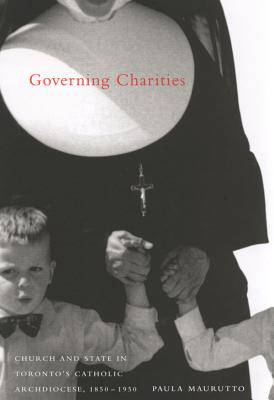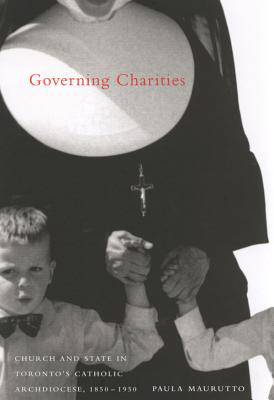
Je cadeautjes zeker op tijd in huis hebben voor de feestdagen? Kom langs in onze winkels en vind het perfecte geschenk!
- Afhalen na 1 uur in een winkel met voorraad
- Gratis thuislevering in België vanaf € 30
- Ruim aanbod met 7 miljoen producten
Je cadeautjes zeker op tijd in huis hebben voor de feestdagen? Kom langs in onze winkels en vind het perfecte geschenk!
- Afhalen na 1 uur in een winkel met voorraad
- Gratis thuislevering in België vanaf € 30
- Ruim aanbod met 7 miljoen producten
Zoeken
Governing Charities
Church and State in Toronto's Catholic Archdiocese, 1850-1950 Volume 50
Paula Maurutto
€ 33,95
+ 67 punten
Omschrijving
Maurutto details how welfare bureaucracies, as they began to expand during the 1930s and 1940s, did so by building stronger links with private voluntary agencies, not by disabling them. Far from being shunted aside, voluntary organizations such as Catholic charities became increasingly entrenched within the expanding welfare state. Standardized reports, state inspections, financial audits, and social work case records, to name only a few, were emblematic of the social scientific impulse that permeated the operations of Catholic charities and enabled them to more systematically police, discipline, and regulate the lives of relief recipients and those designated as moral and social deviants. Notably, they allowed church authorities and the state to exercise greater control and supervision over the internal operations and procedures of charities, in effect enabling these institutions to govern the daily affairs of the voluntary sector.
Specificaties
Betrokkenen
- Auteur(s):
- Uitgeverij:
Inhoud
- Aantal bladzijden:
- 208
- Taal:
- Engels
- Reeks:
- Reeksnummer:
- nr. 24
Eigenschappen
- Productcode (EAN):
- 9780773525351
- Verschijningsdatum:
- 3/06/2004
- Uitvoering:
- Paperback
- Formaat:
- Trade paperback (VS)
- Afmetingen:
- 152 mm x 229 mm
- Gewicht:
- 312 g

Alleen bij Standaard Boekhandel
+ 67 punten op je klantenkaart van Standaard Boekhandel
Beoordelingen
We publiceren alleen reviews die voldoen aan de voorwaarden voor reviews. Bekijk onze voorwaarden voor reviews.









